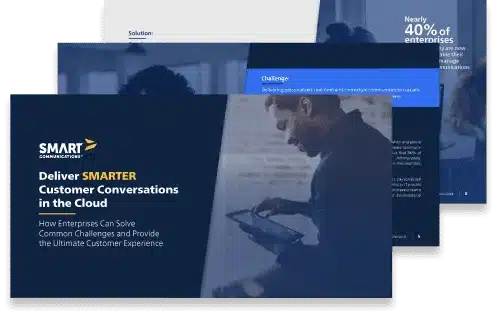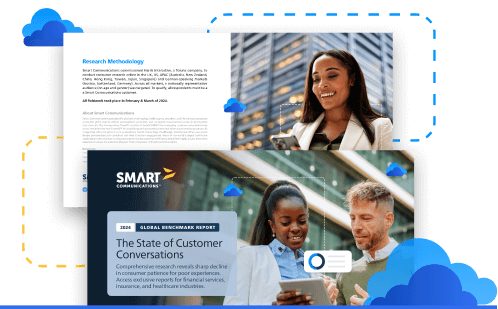Preparing for the #NovelEconomy: Life Beyond COVID-19
By Leigh Segall, CMO of Smart Communications
As companies begin to navigate toward a new normal and post-pandemic life, they’re also adjusting to what many are referring to as the #NovelEconomy, which consists of three phases according to Brian Solis, current Global Evangelist at Salesforce and an industry-leading influencer specializing in disruptive technology trends.
- Phase 1: Survive – Reaction to Crisis
- Phase 2: Alive – Build, Secure, and Operationalize for Transition State
- Phase 3: Thrive – Next Normal Business Continuity, Disruption Proofing, and Innovating Forward
In this post, and given the current phase we’re in, we’ll home in on Phase 1: Survive. During this phase, it’s clear that companies are operating in full-on survival mode – rushing to quickly establish COVID-19 dedicated task forces to take the lead on navigating through new tech investments and strategies needed to address unforeseen issues.
According to Solis, there are “5Cs of Stabilization and Rapid Transformation” in the survival phase of the #NovelEconomy:
- Establish confidence
- Practice compassion
- Understand customer context, specifically in each moment, as it evolves
- Serve content and offers that are native, personalized, relevant and empathetic to their intention and desired outcome
- Prioritize digital and mobile native experiences at every step of the way
As companies address establishing confidence and practicing compassion with their branding, operations, and cultural initiatives, they can turn to technology to deliver on context, content, and digital experiences.
As we enter the #NovelEconomy, a new paradigm is taking shape where customer communications must evolve into contextual, SMARTER Conversations and as Solis flags, the role of digital is pivotal to getting this right. In fact, just this week, Michael Fertik shared his thoughts on the topic in Forbes, stating:
“COVID-19 has highlighted with a fat yellow marker the importance of accelerating digital initiatives and allocating resources to them – not as an afterthought, but as a business imperative…Once customers become accustomed to the convenience and ease of connecting with businesses virtually, they may not be as inclined to return to the way things were. Virtual interactions will increasingly become part of a brand’s overall customer experience and reputation management strategy.”
This vision is one we share at Smart Communications. As customers ourselves, we know personally just how much we expect of our providers today, and just how quickly we’ll make a shift if our trusted providers fail us during this already stressful time. We’ve also seen for ourselves just how much credit we’ll give to those enterprises that get it right for us right now. At a time when everything feels extra cumbersome for your customers, getting it right means internalizing Solis’ 5Cs at every turn.
The customer experience encompasses so much that it might seem too daunting to try to significantly influence it with what may seem like repetitive and required tasks…but that is precisely the problem that can be solved! Remember that every communication you send has a recipient on the other end – a human being who has visited a doctor faced an unexpected financial hurdle or suffered damage from this pandemic. These are people who need to have conversations with your company, and they want those conversations to be fast, frictionless, and enabled 24/7 on any device. When companies recognize the need to shift their focus from what they want to distribute toward instead meeting or exceeding customer expectations, and they adopt cloud-based tools to make that vision a reality, they become empowered to transform rapidly and to evolve to a future that’s centered around customer conversations.
Brian Solis is a Global Innovation Evangelist at Salesforce. His latest work on the #NovelEconomy explores the new normal of customer engagement post-COVID, and the “Three Phases of the Novel Economy” companies need to prepare for.



